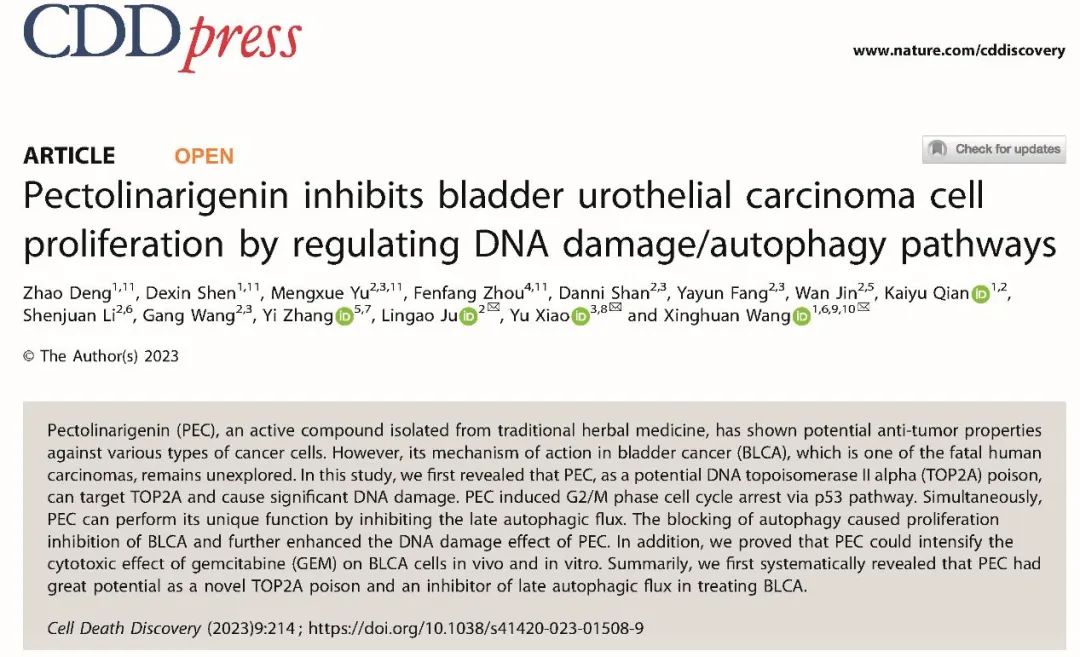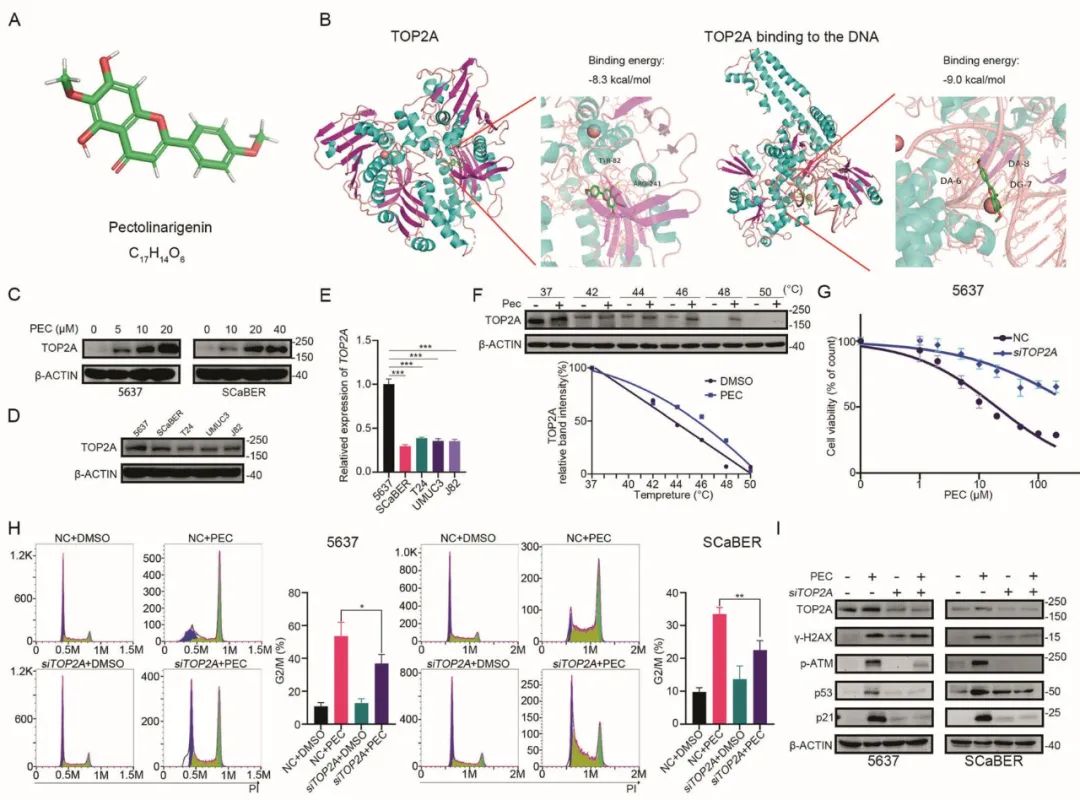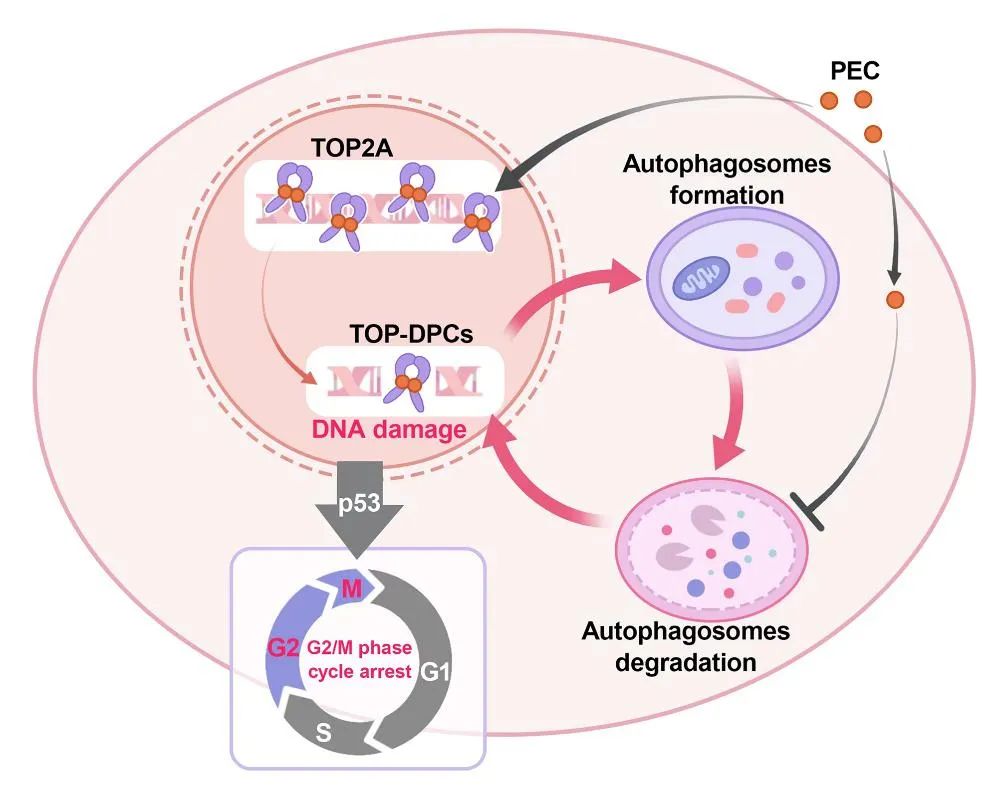

On June 1, 2023, Professor Wang Xinghuan's team from the Department of Urology at Zhongnan Hospital of Wuhan University published their latest research findings on Cell Death Discovery, titled "Pectinaligenin inhibitors urothelial cancer cell proliferation by regulating DNA damage/autophagy pathways"[1]. This study found that the extract of Pectinaligenin from Chinese herbal medicine can target topoisomerase II α (TOP2A) causes DNA damage in cells, and it can inhibit the late autophagy process in cells, thereby inhibiting the proliferation of bladder cancer cells. This discovery provides a new possibility for the treatment of bladder cancer.

Professor Wang Xinghuan's team has long been committed to the development mechanism of bladder cancer and the study of new therapeutic drugs. After preliminary research and screening, the team found that Pectolinarigenin, a small molecule compound extracted from the Chinese herbal medicine, can effectively inhibit the proliferation of bladder cancer cells. Pectolinarigenin is a natural flavonoid compound found in artichokes, Linaria vulgaris, and some citrus fruits, with various pharmacological effects such as anti-inflammatory and anti-cancer. The research team further found that after treatment with the drug, obvious DNA damage occurred in bladder cancer cells. Through molecular docking and cell heat transfer experiments, the research group determined that TOP2A is an intracellular target of Pectolinarigenin. Silence experiment confirmed that TOP2A mediated the inhibition of Pectolinarigenin treatment on the proliferation of bladder cancer cells.

The research team further carried out mechanism research: through literature review and Western blot experiments, it was confirmed that Pectolinarigenin can affect the autophagy process in bladder cancer cells. After further immunofluorescence co-localization of LC3B and P62 proteins and detection of mCherry EGFP-LC3B autophagy fluorescence reporting system, the research team found that Pectolinarigenin can effectively inhibit late autophagy in bladder cancer, thus further enhancing the DNA damage effect and cell proliferation inhibition effect of the drug. In addition, the research team found that the combination of Pectolinarigenin and chemotherapy drug gemcitabine can enhance the killing effect of bladder cancer cells, and the research proved that this effect depends on the late autophagy inhibition effect of Pectolinarigenin . This study provides a possibility for the use of Pectolinarigenin in the treatment of bladder cancer.
In general, this study reveals the mechanism of the antitumor effect of Pectolinarigenin, which provides a new possibility for the development of new chemotherapy drugs for bladder cancer. The first author of this paper is Deng Zhao, a master's student in urology at Zhongnan Hospital of Wuhan University. The project has received research funding support from the National Natural Science Foundation of China, Hubei Provincial Department of Science and Technology, and Zhongnan Hospital of Wuhan University.

References:
[1] Deng Z, Shen D, Yu M, Zhou F, et al. Pectolinarigenin inhibits bladder urothelial carcinoma cell proliferation by regulating DNA damage/autophagy pathways. Cell Death Discovery. 2023 Jul 1;9(1):214. doi: 10.1038/s41420-023-01508-9. PMID: 37393350; PMCID: PMC10314945.
Links:
https://www.nature.com/articles/s41420-023-01508-9